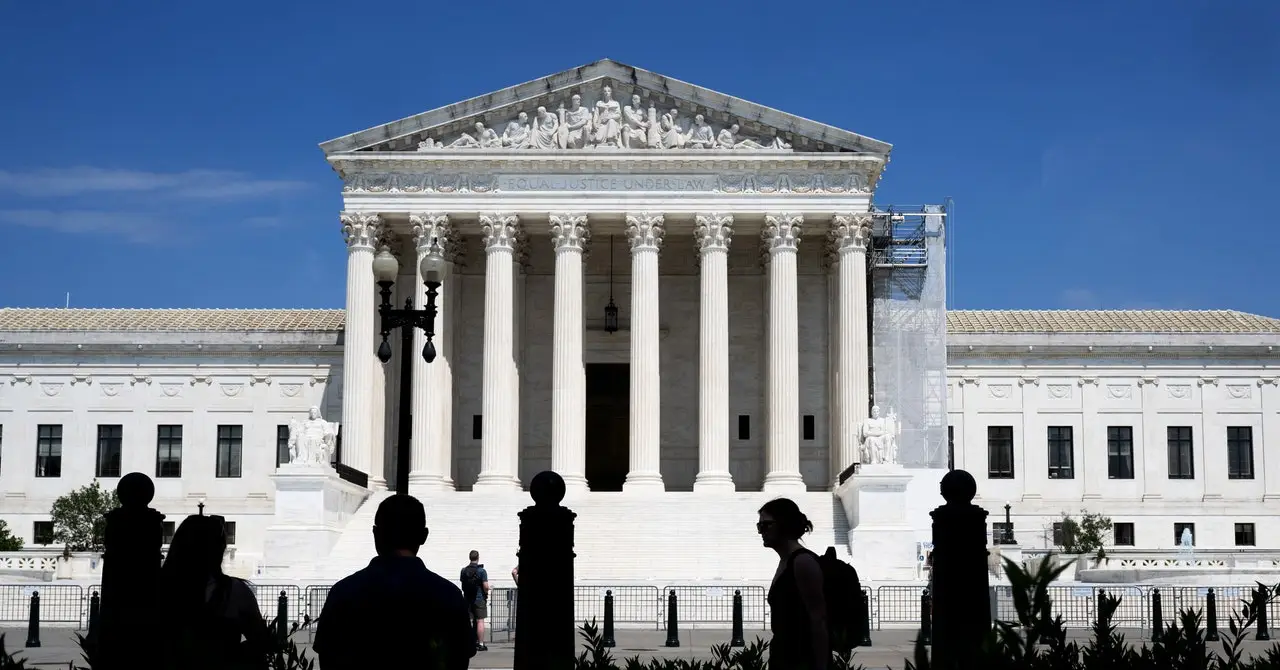After the Supreme Court limited the power of federal agencies to craft regulations, it’s likely up to Congress to keep US cybersecurity policy intact.
Archived version: https://archive.ph/kUJR2
Who CARES if the Judges who were Given Bribes by UNKNOWN Actors CRIPPLED US National Security on Purpose? It’s the DEMOCRATS that are the Swamp!
Most of Congress probably thinks an AOL CD is how you get on the Internet, they might not be the most qualified to craft our cybersecurity policies.
I had 25 CVEs yesterday from the 8 vendors I monitor.
This news is terrifying.
Don’t worry, they have the NSA to guide them.
I was thinking about this the other day, we have a space force, why don’t we have a fully dedicated cyber portion of the military with its own structure, chain of command, and funding?
I know it’s probably all rolled into something else, somewhere else, but it certainly seems more necessary than space force.
DISA: "Am I a joke to you
(Yes, DISA, you’re a joke to everyone)
USCYBERCOM
We do
It is kind of sad to see the US attack other countries
I for one cannot wait to laugh at what kind of bumbling bullshit these 75-year-old geriatric assholes who can barely even answer their own emails come up with.
The internet is a series of tubes
After the Supreme Court limited the power of federal agencies
So, Congress is really just going to sit and do nothing while a group of unelected, openly corrupt people seize control of the country?
Congress is also openly corrupt, so things works for them. They serve their masters the same way the Supreme Court justices does.
I remember when spaceforce was announced one of my friends still in the military kept banging his head since he felt a cybersecurity branch of military was more warranted.
Now Chuck Grassley has a more of a say than before. Oof.
They keep the power in check. We don’t need the executive branch to get any more power. They are way to powerful as it is.
So you prefer that judges make scientific data based decisions without any expertise? Before this, designated agencies who employed subject experts were able to make decisions where law created by Congress was ambiguous, since it’s impossible to define every single edge case. Now judges are the ones that have to evaluate it. You thought courts were slow now? Imagine, you want to add something to a list of dangerous substances, judge has to evaluate it now and decide it not a person who has a degree and expertise. We will see courts flooder with administrative issues, since they removed that authority from the agencies and gave it to themselves. It will be an epic shitshow.
I’m really curious why you think this is good.
FDA: Your honor, chemical xyz is dangerous and should be added to the list it causes people’s teeth to fall out.
Pharma: is losing all your teeth really all that dangerous? We have implants and dentures.
Judge with dentures: I live just fine, DRUG APPROVED!
Edit: oh I forgot the best part given the other rulings.
2 weeks later
Pharma: Hey judge, here’s $500,000 we really appreciate the work you do and giving us some tips on how to properly file some paperwork.
The courts aren’t suppose to do everything. The entire point is to divide up the power and control. The courts can interpret but classification of dangerous substances is out of scope.
That’s my point. But this decision switches that responsibility to judges now. Unless the substance is defined in the law written by Congress, the authority to add new substances to the list now falls on the courts, not agencies. Well not by default, but if any of the companies that produces or uses the substance sues the agency to prevent it, the arbiter of that will be the judge, and it will be decided as a matter of law, not as a matter of scientific data. Data is now not part of the evaluation. And we know from history that they will sue, because that happened every single time so far.
Congress makes laws not the courts. The court can’t just ban something like a drug. They can do things like decide the limits of free speech but actual law making falls to congress. The executive branch approves the bills so they become laws and has the responsibility of enforcement.
Congress does create laws, but like I said previously they are ambiguous, because you can’t note down every single possible case. Until now, that ambiguity has been interpreted by subject experts, now it will be handled by judges. So if the law that gives authority to agencies to ban substances doesn’t spell out each item, but just says those that cause “x harm” or contains “x component”, agencies were able to add new items based on scientific data and if sued, used that data to prove the harm. Now courts must ignore scientific data and judges have to interpret the law exactly as written. So if the item is not specifically named, it’s not part of the law and can’t be added. So the executive branch can’t carry out the job it’s supposed to do. And you can’t create a law that bans a named product that doesn’t exist yet, hence ambiguity and delegation to experts under Chevron. Now, all that is a job of the courts and their slow process that can take up to 10 years, including appeals. Combine that with their another decision that removed the 6-year statute of limitations for challenging regulations, and the courts will be backed up for years upon years now. So good luck getting anything done.
I would really recommend you to read the case, they explain the background quite well. Case file: https://www.supremecourt.gov/opinions/23pdf/22-451_7m58.pdf






